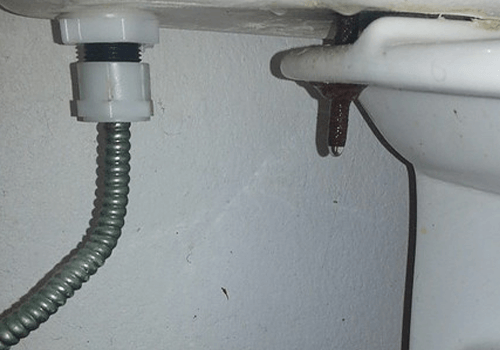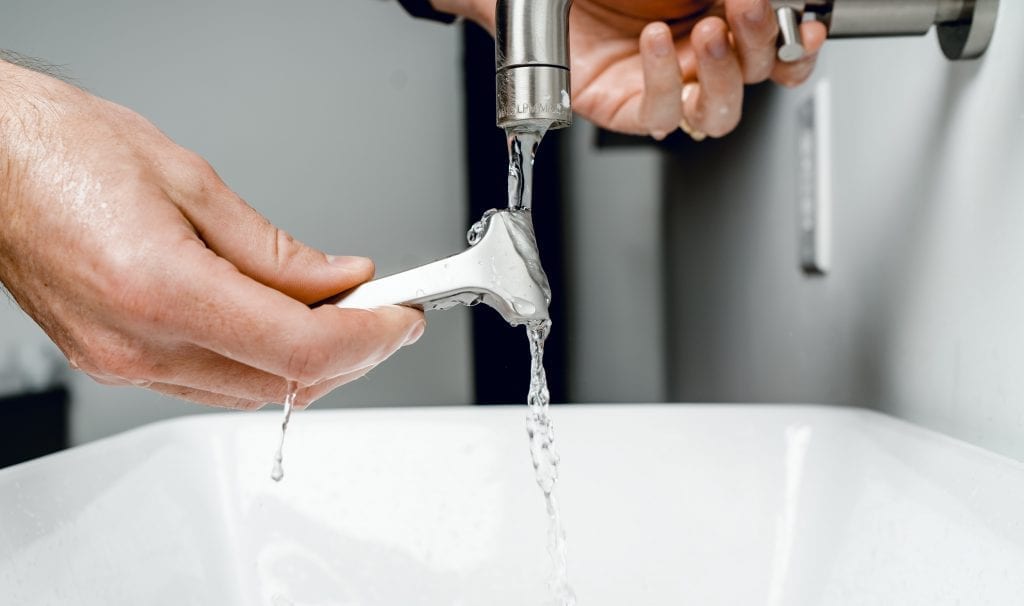Our Ultimate Guide: A Few Winterizing Techniques to Avoid Pipe Bursts in Chilly Conditions
Our Ultimate Guide: A Few Winterizing Techniques to Avoid Pipe Bursts in Chilly Conditions
Blog Article
This article below about How to stop pipes from freezing during the winter is definitely remarkable. Don't bypass it.

All house owners who live in temperate climates have to do their finest to winterize their pipes. It is something you need to do throughout fall prior to deep winter absolutely starts. Failure to do so can spell catastrophe like icy, cracked, or burst pipelines. If the weather exterior is frightful, here are some convenient winterizing hacks to maintain your plumbing system protected even.
Try a Hair Dryer or Warm Weapon
When your pipes are virtually freezing, your reliable hair clothes dryer or heat weapon is a blessing. If the hot towels do not assist remove any kind of clearing up ice in your pipelines, bowling warm air straight into them may help. You might end up damaging your pipelines while attempting to melt the ice.
Open Up Cabinet Doors Hiding Plumbing
When it's chilly outside, it would certainly be helpful to open closet doors that are camouflaging your pipes. Doing this tiny method can keep your pipes cozy and also restrict the potentially dangerous results of freezing temperatures.
Take Some Time to Cover Exposed Pipeline
One nifty and also easy hack to heat up cold pipes is to cover them with warm towels. You can cover them first with towels. After safeguarding them in place, you can put boiling water on the towels. Do it slowly to allow the towels soak up the fluid. You can also make use of pre-soaked towels in hot water, just do not forget to wear safety handwear covers to guard your hands from the heat.
Turn On the Faucets
When the temperature drops and it seems as if the frigid temperature level will last, it will certainly aid to turn on your water both inside and outdoors. This will certainly keep the water streaming with your plumbing systems. In addition, the activity will certainly slow down the cold procedure. Significantly, there's no requirement to turn it on full force. You'll wind up throwing away gallons of water this way. Rather, aim for concerning 5 drops per minute.
When Pipelines are Frozen, shut Off Water
Switch off the main water valve promptly if you discover that your pipes are totally frozen or practically nearing that stage. You will typically locate this in your basement or utility room near the heating unit or the front wall closest to the street. Turn it off today to stop more damage.
Do not forget to shut external water resources, too, such as your connection for the garden residence. Doing this will certainly prevent added water from filling your plumbing system. Regrettably, with more water, more ice will certainly accumulate, which will ultimately lead to burst pipelines. If you are unclear about the state of your pipes this winter months, it is best to call a specialist plumber for an examination. Taking this proactive strategy can save you countless bucks out of commission.
All homeowners that live in temperate climates should do their best to winterize their pipes. Failing to do so can lead to catastrophe like frozen, broken, or ruptured pipelines. If the warm towels do not assist remove any kind of settling ice in your pipes, bowling hot air directly into them might help. Turn off the major water shutoff promptly if you notice that your pipes are entirely frozen or virtually nearing that stage. With even more water, even more ice will stack up, which will ultimately lead to rupture pipelines.
PREVENT YOUR PIPES FROM FREEZING THIS WINTER
A Leading Cause of Property Damage
When the weather is taking a deep nose dive into the cold dreary days, the risk of your pipes freezing and potentially bursting skyrockets. Unfortunately, during these cold dreary months, burst pipes are the most common denominator for property damage. The pipes that are most at the risk are those that are in areas where it is most cold in your home. For instance, pipes located in interior places such as basements, attics, and your garage. Unfortunately, that doesn’t mean that the pipes running through your cabinets or exterior walls can’t freeze. Good news, however, is that you can do things to help prevent pipes from freezing.
How to Prevent Pipes From Freezing
Once the temperature starts to drop during the winter, you should be taking the proper measures needed to ensure that your pipes stay warm and that there is circulation of water through them. Some steps that experts may recommend could go against your better judgement when it comes to saving water and heat. However, it would go without saying that when expenses are compared, damaged pipes could put a bigger dent in your wallet than a water bill.
What Can I Do?
Keep your garage door closed. This is very important, especially if you have water supply lines running through your garage. Open your kitchen and bathroom cabinets to allow warm air to circulate through them. Allow air circulation throughout your home. Keeping the interior doors open will once again allow the warm air to circulate inside your home. Ensure your thermostat is running the same temperature throughout the night and day. If you plan to be away from home during the cold months, set your temperature no lower than 55° F. This should provide enough heat to keep the pipes warm and prevent any remaining water inside the pipes from freezing. For more of a long-term solution, add insulation to attics, basement, and other crawl spaces around your home. By allowing your faucet to drip, it will alleviate pressure in the system. This is important because the pressure that is created between the blockage and the faucet can potentially cause the pipes to burst. Allowing the faucet to drip will prevent the pressure from building up, therefore keeping the pipes from bursting. Seal any cracks, openings, and crawl spaces around your home to prevent cold air from coming inside. This keeps your pipes-not to mention your home-warmer and less susceptible to issues caused by freezing temperatures. For the pipes in your home that are easily accessible, applying electrical tape to them might prevent them from freezing over. This is a quick fix, as you can apply the tape directly to the pipe. There are two options for heating tapes. One turns on and off by itself when it senses heat is needed. The other type of heating tape needs to be applied when heat is needed and removed when not necessary. If you have exposed pipes in your home, you can check this website to take a look at a few options that would be available at a shop near you.

I'm just very inquisitive about Winterizing Your Pipes and I am praying you enjoyed the entire entry. If you enjoyed our blog posting plz remember to pass it around. We thank you for reading our article about How to Prevent Frozen Pipes.
Efficient, reliable plumbing services here. Report this page